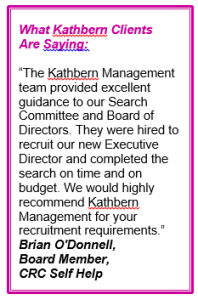(Reading Time: 5 minutes)
Build your business in a way that works for you
Meet Dan.
Dan owns an HVAC company that brings in about $3.5 million a year. Married to his high school sweetheart, he owns a house, has money saved to send his kids to college, and a cottage that he retreats to in the summer. He even has a flashy boat for put-putting around the lake that he secretly enjoys showing off to his friends. He’s pretty comfortable: after paying himself $100,000 a year, he nets about $350,000, which he can take as dividends or choose to leave in the business.
It should be idyllic. Lately, though, Dan is spending more time focused on the minutiae of his business and increasingly less time enjoying his cottage and flashy boat. There doesn’t seem to be enough hours in the day to get everything done, and he could easily double his business if he wanted to. But he’s just not sure that he wants the additional hassle.
Dan caught the entrepreneurial bug gradually. After high school, he went to college to learn his trade, then went on to work for 15 years at a large, established HVAC company, before realizing that he could work for himself instead of someone else. He quit the large company, bought a truck, and started working on his own. Eventually, there was more work than he could handle, so he hired a couple of others to fill in the gaps.
Five years later, he had 10 people on his roster, a bookkeeper, and a small office managed by his wife. He knew everyone’s name, including kids, pets, and grandkids. He was known to show up to the odd birthday party and even put on a Santa suit at Christmas. He counted some of his customers as good friends.
That’s when things started to change. The work has continued to grow and he could double his business, but that would mean increasing his overhead, hiring more technicians, and adding a layer of middle management that he’s not keen on. He is starting to lose that personal connection to his technicians, and the paperwork is overwhelming as it is.
He can see himself maybe growing to 15 technicians, which would bring his revenue to $5 million. More than enough, Dan thinks, to provide for his family and his boat. And he’s not alone; $5 million is a revenue ceiling that many entrepreneurs choose not to crack.
 Entrepreneurs like Dan know that the more revenue grows, the more things will start to get out of control. If Dan grew to manage 40 technicians, for example, he would need to add a whole other layer of management, and suddenly he would have 60 people in total.
Entrepreneurs like Dan know that the more revenue grows, the more things will start to get out of control. If Dan grew to manage 40 technicians, for example, he would need to add a whole other layer of management, and suddenly he would have 60 people in total.
Plus, growing companies eat cash, and it’s easy to run out, even when companies are profitable. Cash is needed for inventory and to finance receivables as a customer base grows. Suddenly, an entrepreneur like Dan will find himself running a massive operation, being required to account for himself to banks for credit lines and other kinds of debt, or even to an equity investor, when all they set out to do was work for themselves.
Sound familiar?
You can make growth work for you. You just have to work at it.
What makes you happy?
First, think about what kind of business owner you want to be…or even if you still want to be a business owner at all. Here are some common types:
- The connector – you want to spend your time finding new clients, selling your product, and getting to know your customers. If this is you, you need a chief operating officer; someone who can oversee your office, keep track of the day-to-day, and handle the paperwork.
- The creator – you want to spend your time refining your products, not running the business. If this is you, you need a president you can trust to run the organization, hire sales reps, manage admin and human resources, and report back to you every month.
- The grand master – you want to build your business into a leading company in your industry. If this is you, you need a team that can execute your vision according to your values, giving you the freedom from the day-to-day minutiae so you can think big picture.
- The independent – you’ve worked hard and you want to enjoy the fruits of your labour. You may want to sell, in which case you need a strategic adviser who can help you plan a successful exit strategy. Or, you may want to continue to own the business but step back entirely, in which case you need to hire a grand master who is dedicated to running the business in your name.
Build a team of professionals
As you work through this, don’t forget to do an analysis of your own working style.
Figure out what you’re not good at or don’t care about, and make sure to hire someone to fill those gaps as you grow. You can contract out a lot of things and avoid having a lot of internal staff until you get to a certain size.
Ultimately, you need a good accountant, a good lawyer, and someone to handle HR, often a mix of internal and external, so you’re not bearing all the load on yourself, as the owner.
It doesn’t have to be lonely at the top
There are also a lot of organizations that specifically support entrepreneurs, including The Executive Committee (TEC), Alternative Board, McKay CEO forums, and YPO. When you join, you typically get access to executive and peer coaching, mentorship, and other professional development opportunities. Executives and entrepreneurs often have to work through tricky dilemmas that only other executives and entrepreneurs understand. (And your family is probably sick of hearing about it by now anyway.)
The Executive Committee, for example, has about 1,900 members in Canada. Members are put in a group of 15 or 16 that’s lead by a professional chair and meets for a full day every month. The chair also spends two hours a month consulting with each member on their own personal issues. Even though members are never in a group with someone from the same industry, they are in a group with people that have the same problems and issues, so that each member has their own board of directors designed to support them.
Keep learning
Another way to learn from others is to read, if you’re so inclined. Listening to audiobooks is a great way to self educate; you can play them while you do yard work, commute to the
office, or if you’re like Dan, drive to the cottage.
The following three are particularly helpful for entrepreneurs and executives:
- The E-myth Revisited: Why most small businesses don’t work and what to about it by Michael E. Gerber – learn how to successfully transition from working in the business to working on the business.
- Traction: Get a grip on your business by Gino Wickman – the genesis of the rigorous process known as the Entrepreneurial Operating System (EOS), this book is about how to coordinate goals and strategies. Wickman also runs a consulting business that leads businessowners through the very intense process.
- Never Split the Difference by Chris Voss with Tahl Raz – written by a former chief hostage negotiator with the FBI, this is a textbook primer on negotiation.
Larry Smith is the founder and president of Kathbern Management, an executive search firm based in Toronto. Kathbern helps companies find the executives and senior managers who not only have the experience and credentials to fulfill their responsibilities, but also have the emotional and “fit” requirements that will enable them to be successful in a particular environment. Kathbern simplifies the process and, through deep research, brings more and better candidates forward than would ever be possible through a do-it-yourself passive advertising campaign.
Learn more at www.kathbern.com, or contact us today for a free consultation about your key person search. Follow us on LinkedIn, Facebook, and Twitter.

